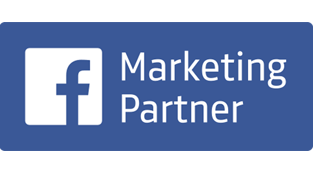Healthcare Law: Navigating Regulations and Compliance in the Medical Industry
In the intricate landscape of the medical industry, understanding and adhering to healthcare law are crucial for practitioners, organizations, and stakeholders. This comprehensive guide explores the complexities of healthcare law, the importance of regulatory compliance, and strategies for navigating legal frameworks in the ever-evolving medical landscape.

Understanding Healthcare Law
Healthcare law encompasses a broad spectrum of legal regulations and principles that govern the provision of medical services, patient rights, and organizational compliance. From federal statutes like the Health Insurance Portability and Accountability Act (HIPAA) to state-specific regulations, healthcare professionals must grasp the intricate legal framework that underpins their practice.
Federal Regulations
At the federal level, healthcare law is shaped by legislation such as the Affordable Care Act (ACA), HIPAA, the Stark Law, and the Anti-Kickback Statute. These laws govern various aspects of healthcare delivery, including insurance coverage, patient privacy, physician referrals, and fraud prevention.
State Regulations
In addition to federal laws, healthcare providers must comply with state-specific regulations that vary widely across jurisdictions. State laws may address issues such as licensure requirements, scope of practice for healthcare professionals, and Medicaid reimbursement policies.
Importance of Regulatory Compliance
Regulatory compliance is paramount in the medical industry to ensure patient safety, protect patient privacy, and maintain the integrity of healthcare operations. Non-compliance with regulations can result in severe consequences, including legal penalties, reputational damage, and loss of trust among patients and stakeholders.
- Patient Safety: Compliance with regulatory standards is essential to safeguard patient safety and prevent adverse events. Regulations governing healthcare facilities, medical devices, and pharmaceutical products are designed to ensure that patients receive high-quality care and treatment.
- Patient Privacy: Protecting patient privacy is a fundamental aspect of healthcare law, particularly with the proliferation of electronic health records (EHRs) and digital healthcare platforms. HIPAA regulations set forth strict guidelines for the handling and disclosure of protected health information (PHI) to safeguard patient confidentiality.
- Integrity of Healthcare Operations: Compliance with regulations fosters transparency, accountability, and ethical conduct within healthcare organizations. By adhering to regulatory standards, healthcare providers demonstrate their commitment to delivering safe, effective, and ethical care to patients.
Strategies for Navigating Healthcare Law
Navigating healthcare law requires a proactive approach and a thorough understanding of legal requirements . Healthcare organizations can adopt various strategies to ensure compliance and mitigate legal risks effectively.
Education and Training
Healthcare professionals and staff should receive comprehensive education and training on relevant laws, regulations, and organizational policies. Training programs should cover topics such as HIPAA compliance, fraud and abuse prevention, and documentation requirements.
Implementing Compliance Programs
Establishing robust compliance programs is essential for identifying, addressing, and preventing regulatory violations. Compliance programs should include policies and procedures for risk assessment, internal auditing, and reporting mechanisms for potential compliance issues.
Engaging Legal Counsel
Healthcare organizations should work closely with legal counsel specializing in healthcare law to navigate complex legal issues effectively. Legal professionals can provide guidance on regulatory interpretations, compliance strategies, and legal representation in disputes or investigations.
Embracing Technology Solutions
Technology can streamline compliance efforts by automating processes, managing documentation, and facilitating communication within healthcare organizations. Electronic health record (EHR) systems, compliance management software, and secure messaging platforms are examples of technology solutions that can enhance compliance efforts.
Conclusion
In conclusion, healthcare law is a multifaceted and evolving field that shapes the operations and practices of the medical industry. By understanding the legal framework, prioritizing regulatory compliance, and implementing effective strategies for navigating legal complexities, healthcare organizations can uphold patient safety, protect patient privacy, and maintain the integrity of healthcare operations.
Ready to ensure compliance with healthcare law and safeguard your practice? Contact us today for a free discovery call to discuss how we can support your compliance efforts and legal needs.



